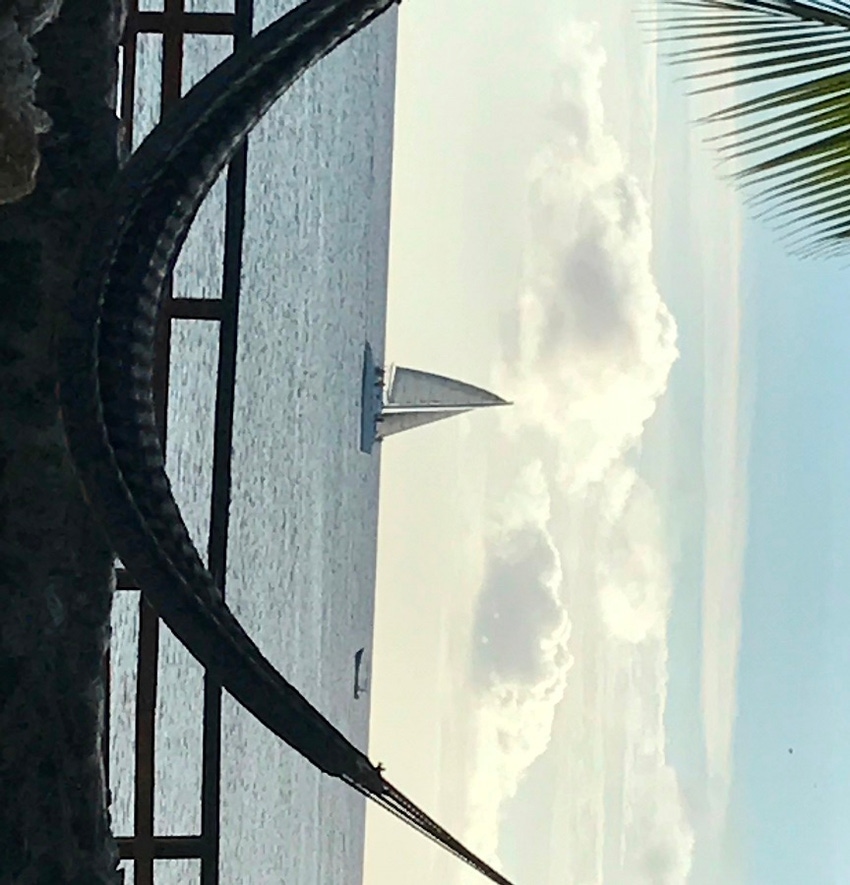
Treasure Island two hours by plane from Houston
We holed up for five days in a small hotel overlooking the water. In the morning, before the mist on the main Island shrouded it, we could see the mountain range on Honduras; otherwise, by mid-morning we seemed to be on a deserted island worthy of Robinson Crusoe.

The guidebook indicates that pirates once sailed the waters off Roatan Island, a small chunk of land about 30 miles off the coast of Honduras. Rumor has it that several seafaring brigands buried treasure somewhere on the island. A king’s ransom of gold doubloons, some say, might remain hidden among the banyan trees and creeping vines that cover the areas inland from some of the more secluded coves.
The same can be said, of course, about any spit of land in the Gulf of Mexico, or anywhere in the Caribbean. Buried treasure is the stuff dreams are made of.
We encountered no buccaneers on our recent trip to Roatan, an unexpected vacation gem about a two-hour plane ride from Houston, Texas. We did find treasure—no silver goblets, no emerald brooches, no gold coin. We discovered, however, an island of unparalleled beauty—glorious sunsets of red, gold, yellow and orange; a painter’s palette of fish and coral in the crystal clear, multi-hues-of-blue waters; lush canopies of foliage extending from the beaches into the hills; blossoms that would deplete a crayon box to duplicate; and the friendliest, most helpful residents I’ve ever encountered at a beach resort.
And they speak English. The Island was colonized by the British, and English remains the official language. We encountered a few Spanish speaking residents who seemed pleased that we attempted to converse in their language. My high school Spanish was hardly adequate, but Pat’s years as a Spanish teacher and my son-in-law Paul’s college courses bridged any language barriers we encountered.
We holed up for five days in a small hotel overlooking the water. In the morning, before the mist on the main Island shrouded it, we could see the mountain range on Honduras; otherwise, by mid-morning we seemed to be on a deserted island worthy of Robinson Crusoe.
A coral reef protects our side of the island from heavy swells—not ideal for surfers, but perfect for snorkeling, which we enjoyed immensely.
Our attentive and knowledgeable bartender, Puma, put us in touch with a guide and boat captain who took us on an island tour and snorkeling adventure. We swam over a ship wreck, discovered dozens of starfish at another sandy-bottomed snorkel site, and we looked for turtles at another spot.
“October is the best time for ‘tortuga’ sightings,” the captain said, seconds before Paul—always first in the water and last out—spotted one not far from the boat. I think we counted as many as six before we headed to the next dive spot (only one for me). I followed that one for several yards—until the bottom of the ocean simply disappeared into a vast expanse of deep blue that was inspiring in its beauty and frightening in its seemingly endless decline into a bottomless abyss. I swam back to the boat.
We stopped at a long dock that extended about 50 yards into the water from a small, sandy cove. For about 30 feet, every other board—sometimes three or four boards—were missing, prompting all to watch their step.
The captain led us into a small village, which, if not for the few cars parked here and there, remains much as it was a century ago. Chickens scurried through the yards; several men knocked fruit of an undetermined species from a tree; and a few dogs (friendly) roamed the dirt paths. We walked to a stilt-supported frame house where our guide called out in Spanish that he had guests for lunch. A middle-aged woman came out on the porch and explained, in perfect English, that no one had called ahead, and she was not prepared to feed an additional eight people. She was most apologetic. We understood, but I’d be willing to bet that we missed out on an excellent meal.
Even with the missed opportunity for a home-cooked, local meal, the trip into the village was worth the walk. Our grandsons—Aaron, Hunter and Walker (only 3) had an opportunity to see a culture vastly different from their own.
My daughter, Stacey, has scads of photos—some spectacular underwater shots—that will remind us for years what treasures can be found in unexpected places. We encountered no scurvy knaves on Roatan, no dastardly buccaneers, and, alas, no buried treasure. But we found a remarkable place to get away, enjoy the people, and see some spectacular sights.
And I haven’t even touched on the zip lining adventure.
About the Author(s)
You May Also Like





